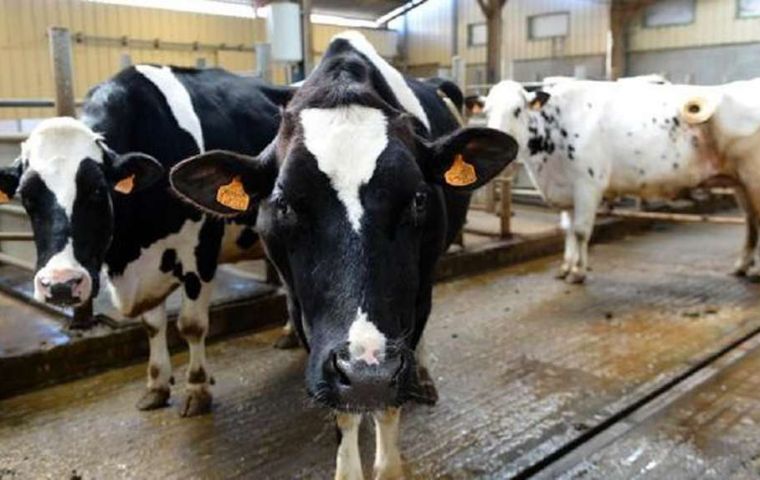MercoPress. South Atlantic News Agency
China approves meat imports from Italy; Brazil and Ireland still out in the cold
 Brazil voluntarily suspended its sales to the Chinese market after the confirmation of two atypical cases of “mad cow” disease in Mato Grosso and Minas Gerais
Brazil voluntarily suspended its sales to the Chinese market after the confirmation of two atypical cases of “mad cow” disease in Mato Grosso and Minas Gerais China’s customs administration said this week that it had approved beef imports from Italy as of October 26th. China relies heavily on imports to meet the growing demand for meat from an increasingly affluent middle class.
It is worth remembering that China is no longer receiving beef from Brazil. Since September 4, following a sanitary protocol between the two countries. Likewise with Ireland for over a year now.
Brazil voluntarily suspended its sales to the Chinese market after the confirmation of two atypical cases of “mad cow” disease in Mato Grosso and Minas Gerais. Although sales have been halted by the decision of the Brazilian government, it is up to China to determine the end of the embargo, which has not yet occurred.
Regarding Ireland over a year ago beef exports to China were also suspended following the discovery of an atypical BSE case. The temporary suspension in May 2020 was a major setback for Ireland, given the time and energy that was invested over the previous decade in securing access to the Chinese market.
In 2020 total Chinese beef imports were a massive 1.7 million tons, and levels are forecast to increase further this year. Securing a foothold once more in this market is considered essential for the long-term viability of the Irish beef industry.
Irish beef exports to China started in 2018, following a sustained diplomatic and industry effort, when two slaughter plants were cleared to ship beef to the country.
Hong Kong and other Far East markets have traditionally provided established outlets for bovine offal – hooves, tongues and other low-value produce – but gaining access to China for high-grade beef cuts was a more difficult endeavor.
Following the 2018 breakthrough, exports to China recorded impressive growth in 2019 as over 20 plants were certified for the trade. In excess of 12,000 tons was exported as a result, with the business worth almost €40 million.
Although the Chinese sales were small relative to Ireland’s overall beef trade – which totaled 560,000 tons in 2020 and generated €2.1 billion in export revenues – the market was considered to have excellent growth potential.
However, the importance of re-opening the Chinese market was illustrated by recent reports of a proposed free market deal between the UK and Australia.
Any such agreement would inevitably include increased access for cheap Australian beef to the UK market. This has worrying implications for Irish beef exports to Britain. The UK takes close to half Ireland’s beef exports each year, with the trade worth close to €1 billion.
Increased competition from Australian beef – in addition to US, Mercosur and New Zealand meat – would inevitably hit Irish prices and margins.




Top Comments
Disclaimer & comment rulesCommenting for this story is now closed.
If you have a Facebook account, become a fan and comment on our Facebook Page!